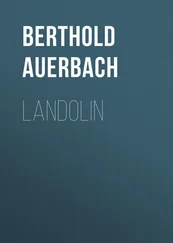Berthold Auerbach - On the Heights - A Novel
Здесь есть возможность читать онлайн «Berthold Auerbach - On the Heights - A Novel» — ознакомительный отрывок электронной книги совершенно бесплатно, а после прочтения отрывка купить полную версию. В некоторых случаях можно слушать аудио, скачать через торрент в формате fb2 и присутствует краткое содержание. ISBN: , Жанр: foreign_antique, foreign_prose, на английском языке. Описание произведения, (предисловие) а так же отзывы посетителей доступны на портале библиотеки ЛибКат.
- Название:On the Heights: A Novel
- Автор:
- Жанр:
- Год:неизвестен
- ISBN:http://www.gutenberg.org/ebooks/33294
- Рейтинг книги:4 / 5. Голосов: 1
-
Избранное:Добавить в избранное
- Отзывы:
-
Ваша оценка:
- 80
- 1
- 2
- 3
- 4
- 5
On the Heights: A Novel: краткое содержание, описание и аннотация
Предлагаем к чтению аннотацию, описание, краткое содержание или предисловие (зависит от того, что написал сам автор книги «On the Heights: A Novel»). Если вы не нашли необходимую информацию о книге — напишите в комментариях, мы постараемся отыскать её.
On the Heights: A Novel — читать онлайн ознакомительный отрывок
Ниже представлен текст книги, разбитый по страницам. Система сохранения места последней прочитанной страницы, позволяет с удобством читать онлайн бесплатно книгу «On the Heights: A Novel», без необходимости каждый раз заново искать на чём Вы остановились. Поставьте закладку, и сможете в любой момент перейти на страницу, на которой закончили чтение.
Интервал:
Закладка:
The pious lady, who had, indeed, read the novel in secret and was loth to talk of such subjects, changed the conversation by introducing the topic of Walpurga. As the latest piece of news, she acquainted them with the report that the nurse could sing beautifully.
"Who sings beautifully?" inquired Countess Irma, joining the group.
"This will interest you, dear Wildenort. You will be able to learn many new songs from Walpurga, and accompany them on the zither."
"I'll wait until we are in the country again. A peasant woman seems strangely out of place in a palace. When does the court return to the country?"
"Not for six weeks."
There was much talk about Walpurga. One lady maintained that Doctor Gunther was a native of the Highlands, and that it was only through his intriguing that a nurse had to be brought from the same region; that he was constantly surrounding himself with allies, and was clever enough to know that this person would exert a great influence upon the queen. They also spoke of the doctor's love of intrigue, and of his affecting to sympathize with the queen in all her extravagant fancies. Of one thing they all felt assured: that it was impossible to retain the favor of the court for so long a time, by fair means alone.
"The doctor isn't so very old," remarked a very thin lady. "He is only a little over fifty. I think he must have dyed his hair white, in order to appear venerable before his time."
Loud laughter greeted this sally.
Before breakfast, the ladies and gentlemen were in separate groups. A knot of courtiers were discussing the telegrams which had been sent out to various governments, and to which, in some instances, replies had already been received.
It was not until after breakfast that a council of the royal household was to determine who, besides the queen's parents, should be invited to stand as sponsors. It was even reported that the christening would be celebrated by a special papal nuncio, assisted by the bishop.
Countess Irma's brother, the king's aid-de-camp, again diverted the conversation from such lofty topics back to Walpurga. He extolled her beauty and her droll ways, and they smacked their lips, when they spoke of the queen's kiss. The aid-de-camp had given vent to a joke on the subject, at which they laughed uproariously.
"The king!" suddenly whispered several of the gentlemen.
They separated and, while making their obeisance, arranged themselves in two rows. The king, acknowledging their salutation, passed between the rows and entered the hall of Diana, where breakfast was served. The frescoes on the ceiling represented the goddess with her hunting train, and had been painted by a pupil of Rubens. The lord steward handed a packet of telegrams to the king, who instructed him to open them, and inform him when they contained anything more than congratulations.
They now sat down to breakfast.
The company was not so cheerful and unconstrained as it had been at the summer palace. Indeed, no one had yet recovered from the excitement of the previous night, and conversation was carried on in a quiet tone.
"Countess Irma," said the king, "I commend Walpurga to you; she will be sure to please you. You will be able to learn some beautiful songs from her, and to teach her new ones."
"Thanks, Your Majesty! If Your Majesty would only deign to order the first lady of the bedchamber to grant me access, at all times, to the apartments of His Royal Highness the crown prince."
"Pray see to it, dear Rittersfeld!" said the king, turning to the lord steward.
Countess Irma, who sat at the lower end of the table, received the congratulations of all. Walpurga had become the sole topic of conversation.
The morning papers were brought to the king. He glanced through them hurriedly and, throwing them aside with an angry air, said:
"This babbling press! The queen's kiss is already in all the newspapers." His face darkened; it was evident that, as the fact itself had displeased him, the publicity given it was doubly annoying. After a time, he said:
"I desire you, gentlemen and ladies, to see to it that the queen does not hear of this." He rose quickly, and left the apartment.
The breakfast party lingered for some time, and the pious lady could now openly join the ranks of the scandalmongers. The mantle of charity was no longer necessary-it was very evident that the king had already tired of his sentimental wife.
If Countess Irma-? Who could tell but what this was part of a deep-laid plan to give her free access to the crown prince's apartments? The king could meet her there-and who knows but that-
They were quite ingenious in the malicious conjectures which they whispered to each other with great caution and circumspection. For a while, at least, Walpurga, the queen and even the crown prince were completely forgotten.
CHAPTER XIII
"There, my boy! Now you've seen the sun. May you see it for seven and seventy years to come, and when they've run their course, may the Lord grant you a new lease of life. Last night, they lit millions of lamps for your sake. But they were nothing to the sun up in heaven, which the Lord himself lighted for you this very morning. Be a good boy, always, so that you may deserve to have the sun shine on you. Yes, now the angel's whispering to you. Laugh while you sleep! That's right. There's one angel belongs to you on earth, and that's your mother! And you're mine, too! You're mine, indeed!"
Thus spake Walpurga, her voice soft, yet full of emotion, while she gazed into the face of the child that lay on her lap. Her soul was already swayed by that mysterious bond of affection which never fails to develop itself in the heart of the foster-mother. It is a noble trait in human nature that we love those on whom we can confer a kindness. Their whole life gradually becomes interwoven with our own.
Walpurga became oblivious of herself and of all that was dear to her in the cottage by the lake. She was now needed here where a young life had been assigned to her loving charge.
She looked up at Mademoiselle Kramer, with beaming eyes, and met a joyful glance in return.
"It seems to me," said Walpurga, "that a palace is just like a church. One has only good and pious thoughts here; and all the people are so kind and frank."
Mademoiselle Kramer suddenly smiled and replied:
"My dear child-"
"Don't call me 'child'! I'm not a child! I'm a mother!"
"But here, in the great world, you are only a child. A court is a strange place. Some go hunting, others go fishing; one builds, another paints; one studies a rôle , another a piece of music; a dancer learns a new step, an author writes a new book. Every one in the land is doing something, – cooking or baking, drilling or practicing, writing, painting, or dancing-simply in order that the king and queen may be entertained."
"I understand you," said Walpurga, and Mademoiselle Kramer continued:
"My family has been in the service of the court for sixteen generations"; – six would have been the right number, but sixteen sounded so much better; – "my father is the governor of the summer palace, and I was born there. I know all about the court, and can teach you a great deal."
"And I'll be glad to learn," interposed Walpurga.
"Do you imagine that every one is kindly disposed toward you? Take my word for it, a palace contains people of all sorts, good and bad. All the vices abound in such a place. And there are many other matters of which you have no idea and of which you will, I trust, ever remain ignorant. But all you meet are wondrous polite. Try to remain just as you now are, and, when you leave the palace, let it be as the same Walpurga you were when you came here."
Walpurga stared at her in surprise. Who could change her?
Читать дальшеИнтервал:
Закладка:
Похожие книги на «On the Heights: A Novel»
Представляем Вашему вниманию похожие книги на «On the Heights: A Novel» списком для выбора. Мы отобрали схожую по названию и смыслу литературу в надежде предоставить читателям больше вариантов отыскать новые, интересные, ещё непрочитанные произведения.
Обсуждение, отзывы о книге «On the Heights: A Novel» и просто собственные мнения читателей. Оставьте ваши комментарии, напишите, что Вы думаете о произведении, его смысле или главных героях. Укажите что конкретно понравилось, а что нет, и почему Вы так считаете.












